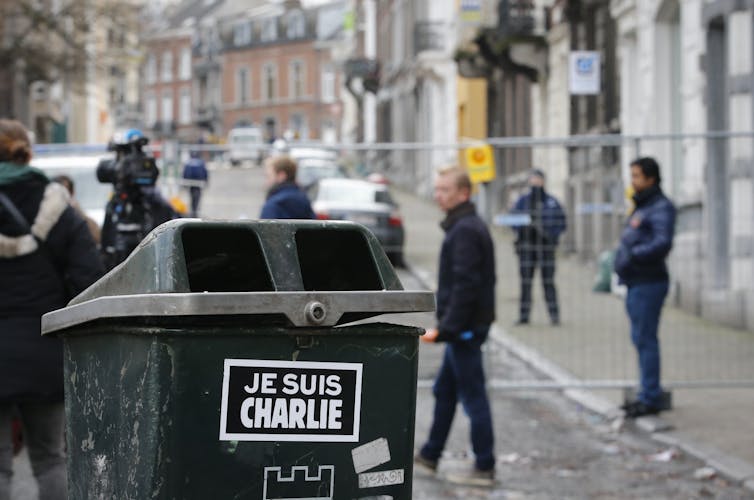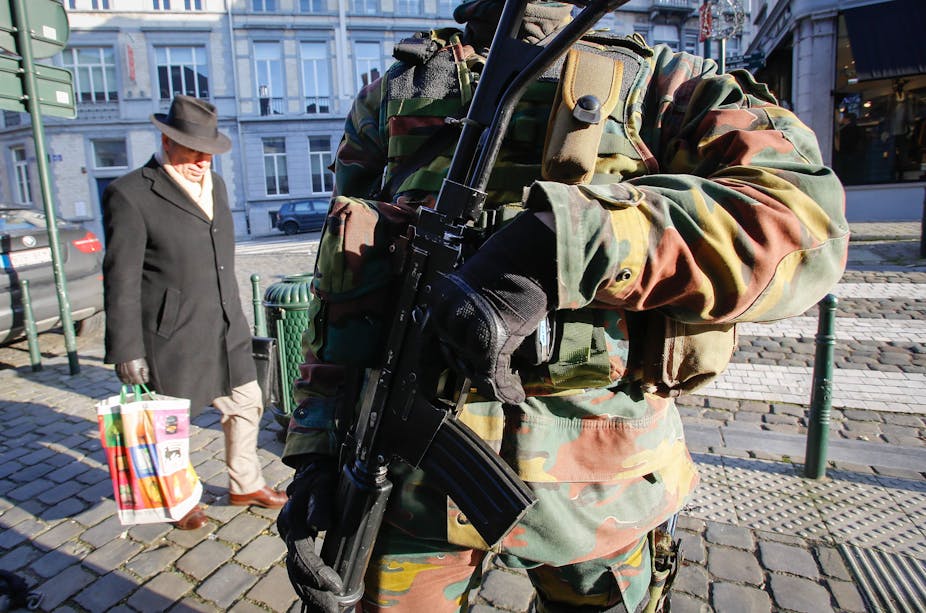Even as the world was still trying to make sense of the Paris attacks, attention suddenly shifted towards Brussels with the news that two suspected jihadis had been killed in a police anti-terror raid at Verviers, close to the Belgian borders with Germany and the Netherlands.
It was subsequently revealed that Amedy Coulibaly – author of the attack at the kosher supermarket and against a policewoman – may have bought his weapons in Belgium.
The raid in Verviers, in which 13 suspected extremists were detained (of whom five have subsequently been charged) also netted large amounts of guns and ammunition as well as police uniforms and a large amount of money, leading authorities to believe that operations against Belgian police had been planned.
The inquiry had been going on for a couple of weeks before the attacks in Paris but was brought forward to prevent what were believed to be imminent attacks in the Belgian territory. Despite official attempts to reassure the public, there is a tangible climate of concern, understandable not only given the previous weeks’ events in neighbouring France, but also because the memory of last year’s attack at the Jewish museum in Brussels remains fresh.
Multi-faceted problem
As the situation develops, the Belgian government is confronted with three problems: terrorist threats, arms trafficking and radicalisation. The issue of foreign fighters – Europeans travelling to Syria, Iraq, Yemen and Afghanistan, engaging in radical and terrorist activities – has become particularly pressing. While statistics are hard to find due to lack of reliable information, Belgium appears to have the highest number of foreign fighters per capita among the EU countries, recently estimated as 27 fighters per million inhabitants. By contrast, France is thought to have about 16 per million people.
One of the networks funnelling prospective jihadis to war zones is slowly being revealed in the ongoing trial against Sharia4Belgium, a small group accused of incitement to extremism, opposition to democracy and recruiting, training and radicalising young Muslims with the aim of sending them to fight in Syria alongside jihadi forces.
As Thursday’s police operations concerned individuals said to be returning from combat in Syria, the problem is revealed in its complexity: how to prevent people from making these journeys and what to do when they decide to come back as experienced fighters?
Belgium is not alone in this. To effectively respond to the problem the Radicalisation Awareness Network, established in 2011 by the EU Commission, will be strengthened with the creation of a European knowledge hub aimed at sharing best practices on prevention of terrorist crimes and radicalisation.

As well as the 2013 French-Belgian initiative which involves sharing intelligence among the interior ministers of the countries most affected by radicalisation, Belgium will also host the Syria Strategic Communication Advisory Team, financed by the EU commission to share strategy on combating the spread of radical discourse.
Delicate balance
As for the internal measures, the Belgian government is – like most governments after 9/11 – trying to balance the need for security and information with the right to privacy and freedom of expression. The 12-point programme against terrorism and radicalism, presented on January 16 by prime minister Charles Michel, included some controversial measures such as increased powers for phone tapping as well as the use of military personnel for specific missions of surveillance in the streets.
Two points specifically deal with preventive measures. First, a revision of the 2005 Plan R. The decade-old document refers to provisions to combat the potential sources of extremism, including those preaching violence both in community centres and on the internet. Currently, notable work is being conducted by the Belgian General Intelligence and Security Service elaborating counter-narratives to contrast extremists’ information, part of their fight against ISIS.
The plan also includes combating the spread of radical ideologies in prison, fearing that proximity with militants might turn detention centres in hubs for radicalisation. Prevention being only one side of the coin, authorities have to deal with the problem of what to do when the fighters return to Belgium. The minister of justice, Koen Geens, is concerned with how and where to imprison convicted individuals to avoid the prospect of prisons becoming a recruiting ground for extremism, while former prime minister Elio Di Rupo has stressed the need of a case-by-case approach, taking into consideration security measures other than imprisonment.
Authorities are particularly worried about the risk of stigmatising specific communities or neighbourhoods – which would risk causing deepening social rifts in Belgian society and make it easier for extremists to recruit disaffected people in these communities. Acknowledging this danger, the federal strategy presented by the previous government explicitly referred to the need to tackle the reasons pushing young people to engage in extremist activities (“actions against frustrations”): racism, anti-Semitism and Islamophobia, but also discrimination and unemployment.
The challenge ahead of the government requires a strategy that reflects the modern, post-financial crisis context. Young people are suffering badly from the recent crisis and the resulting unemployment, so policies need to focus not only on the immediate response to threats, but must also look more into the long term. There must be an effort in civil society to avoid the marginalisation of minority groups to make sure that every young Belgian gets an chance in life, reducing the pulling power of the radical message.

